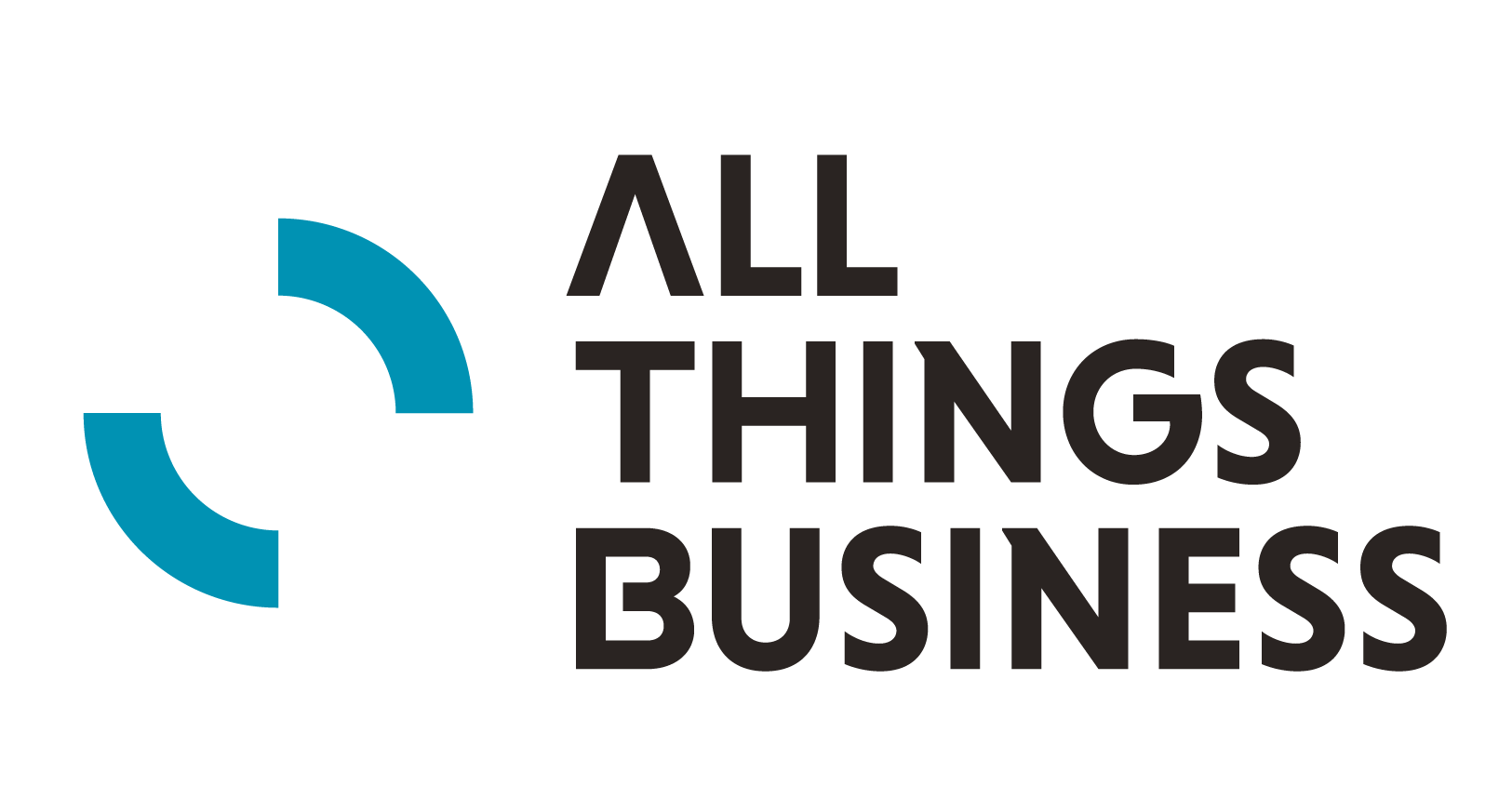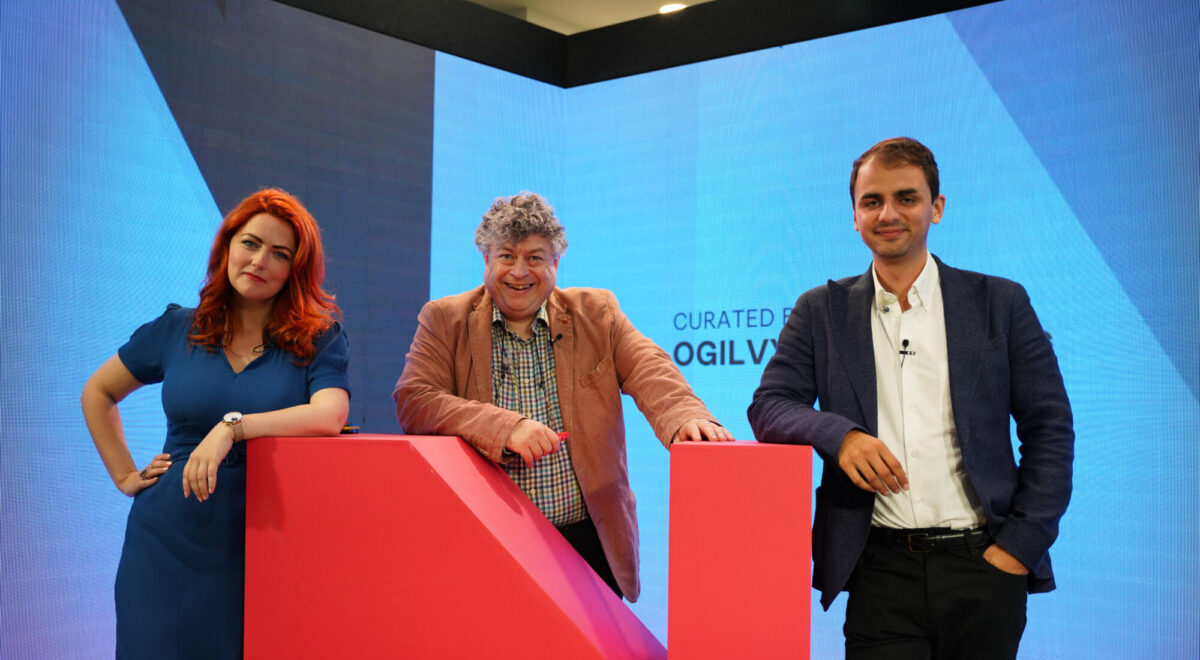Rory Sutherland has been in marketing for 35 years, joining the London office of global agency Ogilvy & Mather as a graduate trainee planner in 1988 – he’s now Vice Chairman of the Ogilvy Group in the UK. Having founded the behavioural science practice within the group, the goal of which is ‘to develop marketing techniques inspired by the fields of psychology and economics, rather than shape customer desires through conventional advertising’, he has become a keynote speaker on the psychology of marketing. He’s also written two books on the subject and has a regular column as The Spectator’s The Wiki Man. All Things Business Editor Judith Halliday caught up with Rory to find out how his thinking can bring a different perspective to marketing and what we can all learn from it.
An Amazon review for his first book, The Wiki Man, describes Rory Sutherland as ‘the thinking man’s grumpy old man’. I may have been on the wrong call. So far from grumpy, Rory is the journalist’s worst kind of interviewee – one you simply want to sit back and listen to rather than bother with all that asking relevant questions stuff.
Rory strikes a chord with his audiences – in person, on podcasts, TED Talks or in print – because of his observational skills. He notices things in human nature and behaviour that we all recognise (we just hadn’t really thought about it before) and uses that to draw attention to how people process the world, how they behave and how businesses can use that knowledge to engage with customers through intelligent marketing.
He describes what he does as being rather like stand-up comedy. That’s not to say he’s suggesting he should be a regular on Live at the Apollo, but I did have to admit to him that listening to his ideas for improving Eurostar on a YouTube video earlier that day had made me laugh out loud – it goes like this: Why is it necessary to spend six billion pounds speeding up the Eurostar train when for about 10% of that, you could have top supermodels, male and female, serving free Chateau Petrus to all the passengers for the entire duration of the journey? You’d still have over five billion left, and people would ask for the trains to be slowed down.
Rory loves to talk, excellent news for any business or organisation, whatever its size, that is not in a position to engage the services of a global marketing company – and, via numerous platforms he has just as much, if not more, to offer SMEs and sole operators as he does the billion-pound multinationals.
In fact, a lot of the ideas he throws around are ways in which small businesses, sole traders even, can harness way the big players have changed their industries.
“Take plumbers, for instance, or electricians, you can never get one when you need one. Imagine if someone came up with an Amazon Prime-type model where customers could pay a certain amount up front and that fee guaranteed them a certain number of hours a year or premium slots – I’d pay for that. All the tradesperson has to do is dedicate the first few hours of every day to those customers, then move on to all the other jobs they’ve got lined up for those who aren’t in the system.
“Even then, give those other customers a time, text them to let them know when you might be there. As long as someone knows everything is in hand and you haven’t forgotten about them, they don’t get stressed and will be happier to wait a bit longer.
“Another thing is, why there isn’t an Amazon Locker style set up for independents. I could order a book from my local bookshop, for instance, they drop it in a locker at the end of the day, I pick it up on my way home. It would revolutionise our high streets and provide a better service for customers.”
Talking about removing stress prompts Rory to recount one of his favourite anecdotes about successful marketing. He sings the praises of Uber for one particular aspect of their service – developing the tracking software on the app so that customers can follow their cab’s progress to the point where it pulls up in front of them.
“It revolutionised the taxi sector. Everyone gets stressed waiting for a taxi they’ve booked. They worry it won’t turn up or that they’ve been forgotten about. Uber tackled that head on and now, even if you have to wait, all the stress has gone and you don’t mind the wait. And my favourite part of the story is that the idea came from someone who had seen the James Bond movie Goldfinger, which has a scene where Bond is following Goldfinger’s car using a tracking system. It triggered an idea, but the most interesting part is what it takes to have the courage to bring it up in a meeting. Imagine sitting there listening to everyone else going on about spreadsheets or access to capital or consumer engagement, and when it comes to the Any Other Business section you then dare to speak up and say, ‘I was watching James Bond last night and I came up with this really good idea!’
“The main problem with business is that once you put a lot of people in a meeting, their priority becomes to look important. To be the person that admits having come up with an idea because they were watching James Bond is very brave. It might have felt trivial but look what happened – and that kind of thinking part of the reason you often get a completely different perspective from an external marketing agency rather than an internal one.”
Behavioural psychology is at the heart of the Uber story, understanding what matters to customers and how a brand makes them feel. It’s why retail loyalty cards appeal to customers because they feel they are getting a reward, rather than the store simply lowering its prices, which may be just as beneficial to the consumer but is forgotten almost as soon as it’s done. For Rory, it’s often the small things that win customers’ hearts and minds.
“If you want to gain a customer for life, close your shop five minutes early, and if you see someone approach, unlock the door and let them in. If you want to lose a customer for life, leave the door unlocked until five minutes after you meant to, let them walk into your shop and then tell them ‘Sorry, we’re closed!’
“What really matters to people is often surprising. The one piece of advice I would give to every business, from the largest billion-pound corporation to an SME, is really quite banal. It’s answer the bloody phone! If you answer the phone well when they call the first time, they go away with the impression that you will be easy to deal with from now on. How we answer the phone is out of all proportion to the positive effect it has, how people end up feeling about your company. I do, however, genuinely think that means schools will have to start teaching young people telephone skills because they seem to have a mortal fear of speaking on the phone, so who knows how that will work out.”
Technology is shaping business, and good marketing is about finding a way to use it that is focused on the customer and their experience of a brand. Regarding HS2, and discounting the supermodel idea for now, Rory is dismissive of the benefits of the time-saving aspects.
“Knocking 50 minutes off a two-hour journey London to Manchester is fairly meaningless. I do that trip and inevitably arrive at Euston half an hour early because I’ve bought an advance ticket for a particular train. What would help me more than a quicker journey by train – which is the bit I enjoy – would be a system that knows I’m at the station and messages me to say there’s a seat on a train that’s leaving in five minutes if I want it.
“Fairly straightforward technology, far cheaper than building HS2, that would improve my journey, improve my mood, improve the efficiency of the system. And, it would stop me going for a Burger King!”
OK, maybe he might not be going on the comedy circuit yet, but Rory’s wise words are there for everyone, entertaining and helpful. His fundamental advice to all businesses is to combine short-term, measurable marketing strategy, from which you can gain insight into its effectiveness, but to also accept that long-term marketing can’t always be measured, you just have to accept it’s working.
“It’s like trying to describe how famous someone is, it’s not really measurable in any real sense. It’s the same with business; long-term marketing, building a brand, is difficult to measure in real terms, but if you get it right it’ll be clear that it’s worth doing.”
For more information about Ogily, visit www.ogilvy.com


 “It revolutionised the taxi sector. Everyone gets stressed waiting for a taxi they’ve booked. They worry it won’t turn up or that they’ve been forgotten about. Uber tackled that head on and now, even if you have to wait, all the stress has gone and you don’t mind the wait. And my favourite part of the story is that the idea came from someone who had seen the James Bond movie Goldfinger, which has a scene where Bond is following Goldfinger’s car using a tracking system. It triggered an idea, but the most interesting part is what it takes to have the courage to bring it up in a meeting. Imagine sitting there listening to everyone else going on about spreadsheets or access to capital or consumer engagement, and when it comes to the Any Other Business section you then dare to speak up and say, ‘I was watching James Bond last night and I came up with this really good idea!’
“It revolutionised the taxi sector. Everyone gets stressed waiting for a taxi they’ve booked. They worry it won’t turn up or that they’ve been forgotten about. Uber tackled that head on and now, even if you have to wait, all the stress has gone and you don’t mind the wait. And my favourite part of the story is that the idea came from someone who had seen the James Bond movie Goldfinger, which has a scene where Bond is following Goldfinger’s car using a tracking system. It triggered an idea, but the most interesting part is what it takes to have the courage to bring it up in a meeting. Imagine sitting there listening to everyone else going on about spreadsheets or access to capital or consumer engagement, and when it comes to the Any Other Business section you then dare to speak up and say, ‘I was watching James Bond last night and I came up with this really good idea!’